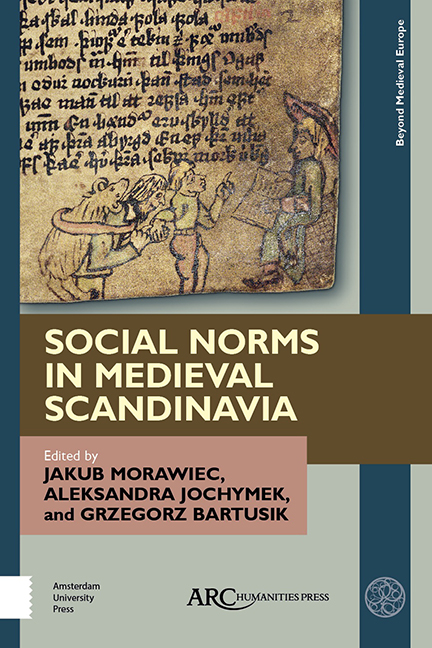Introduction. The goðar and “Cultural Politics” of the Years ca. 1000– 1150
Published online by Cambridge University Press: 20 November 2020
Summary
AS STATED IN the preface, the chapters in this volume address numerous and intricate questions regarding Old Norse culture; rituals, social ties, social norms, outlaws, lawmaking, and cognitive structures. The main sources for the discussion are the Icelandic family sagas, the kings’ sagas, as well as Eddic poetry, laws, and sagas such as Karlamagnús saga. The diversity of topics is the strength of the volume. This is possible due to the exceptional source situation that offers us almost endless opportunities of discussing different aspects of the Old Norse culture. This richness, from a population which was probably not larger than 50–60,000 during the High Middle Ages, is the main reason for the global interest in this culture. The scholarly debate over the last few decades has to a large extent focused on the High and Late Middle Ages. Little attention has been paid to the eleventh and twelfth centuries, and the events which triggered the processes of the time. That will be the focus of this chapter, and particularly the roles played by the major churches, and Haukdælir and Oddaverjar, the two most important goðar families in the Free State Society (930–1262/ 64). The introduction of Christianity in the year 999/ 1000 will mark the beginning of the period in question, which will last until the foundation of the archbishopric in Nidaros in 1152/ 53.
Skalholt, Haukadalur, Oddi, and Holar
Christianity became the official religion of Iceland in the year 999/ 1000. It was the control the goðar held over the Old Norse religion which made this possible. During the following years several foreign bishops arrived in the country, but nothing is known regarding their general impact. In Hungrvaka it is stated that Gizurr Teitsson of the Haukdælir family, who had supported the introduction of Christianity, took his son Ísleifr Gizurarson (1006– 1080) to the nunnery Herford (Herfurða) in Westphalia, a renowned centre of learning. He returned ordained as a priest before 1030, and immediately, or soon thereafter, took over the goðorð his father had controlled. The þáttr about Ísleifr and Hungrvaka does not mention whether he had been learned in Latin before he travelled to Herford.
- Type
- Chapter
- Information
- Social Norms in Medieval Scandinavia , pp. 1 - 16Publisher: Amsterdam University PressPrint publication year: 2019



